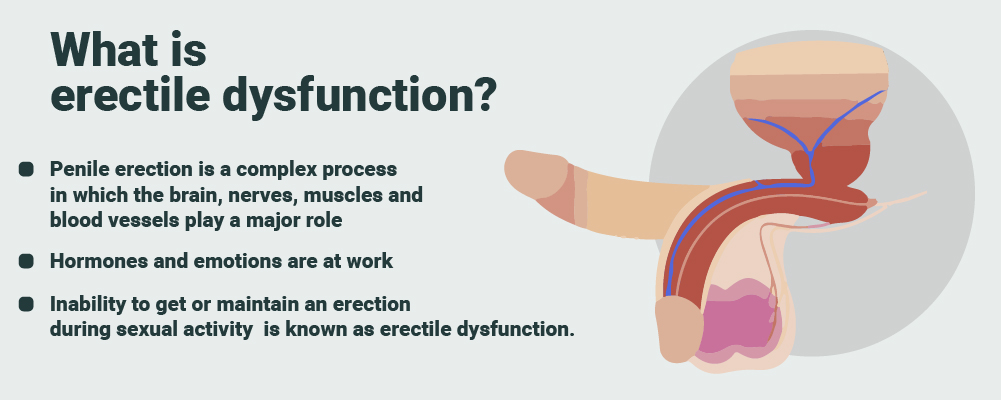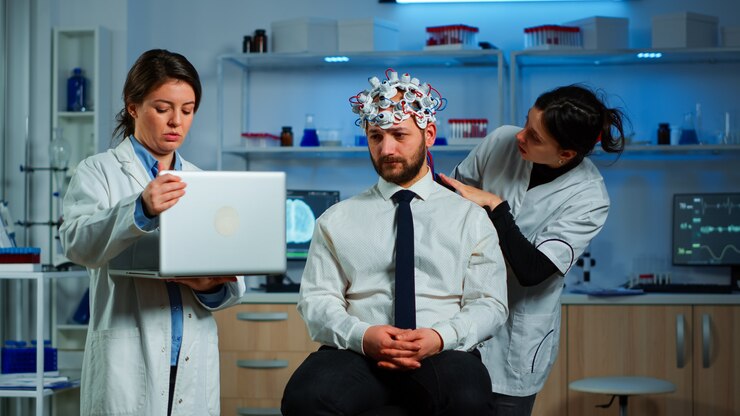What is Erectile Dysfunction? Complete Definition in Hindi

Understanding Male Sexual Health

Male sexual health encompasses a wide range of factors that contribute to a man’s overall well-being and satisfaction in intimate relationships. It involves understanding the anatomy and physiology of the male reproductive system, as well as the psychological and emotional aspects that can influence sexual function. Proper nutrition and lifestyle choices also play a crucial role in maintaining optimal sexual health.
One key aspect of male sexual health is understanding the various stages of sexual response, which include desire, arousal, and orgasm. These stages are influenced by hormonal and neurological factors, as well as by psychological and environmental factors. By understanding the complexities of these stages, men can better grasp the intricacies of their sexual experiences and make informed decisions regarding their sexual health.
Another important aspect of male sexual health is the recognition and understanding of sexual problems that can arise. These may include erectile dysfunction (difficulty achieving or maintaining an erection), premature ejaculation (reaching orgasm too quickly), or a low sex drive. By familiarizing themselves with the signs and symptoms of these conditions, men can seek appropriate medical help and explore potential treatment options. It is crucial to remember that sexual problems can affect men of all ages, and seeking professional advice is essential for addressing and managing these concerns effectively.
In conclusion, understanding male sexual health involves delving into the various factors that contribute to sexual well-being. This includes familiarizing oneself with the intricacies of the male reproductive system, recognizing and addressing sexual problems, and making lifestyle choices that optimize overall sexual health. By empowering themselves with knowledge and seeking support when needed, men can take control of their sexual health and enhance their overall quality of life.
• Understanding male sexual health involves understanding the anatomy and physiology of the male reproductive system.
• It also includes recognizing the psychological and emotional aspects that can influence sexual function.
• Proper nutrition and lifestyle choices play a crucial role in maintaining optimal sexual health.
• The stages of sexual response, including desire, arousal, and orgasm, are important to understand for better sexual experiences.
• Hormonal and neurological factors, as well as psychological and environmental factors, influence these stages.
• Recognizing and understanding common sexual problems like erectile dysfunction or premature ejaculation is essential for seeking appropriate medical help.
• Seeking professional advice is crucial for addressing and managing sexual concerns effectively at any age.
Exploring the Causes of Male Sexual Problems
Male sexual problems can be attributed to a variety of factors, ranging from physical to psychological causes. One common physical cause is hormonal imbalance, specifically related to testosterone levels. Testosterone plays a crucial role in the male reproductive system, influencing sexual desire and performance. When testosterone levels are low, it can lead to a decrease in libido and difficulties in achieving and maintaining erections. This issue can be further compounded by certain medical conditions such as diabetes and heart disease, which can affect blood flow to the genital area.
Psychological factors can also contribute to male sexual problems. Anxiety, stress, and depression can all have a significant impact on sexual function. These mental health conditions can disrupt the brain’s communication with the reproductive system, leading to erectile difficulties or a loss of sexual interest. Additionally, relationship problems, unresolved conflicts, or a lack of emotional intimacy can contribute to sexual dysfunction. It’s important to acknowledge the role of both physical and psychological factors when exploring the causes of male sexual problems, as a comprehensive approach is needed to address these issues effectively.
Certainly! Here’s a concise data table on the causes of male sexual problems:
| Causes of Male Sexual Problems | Description | Source |
|---|---|---|
| Psychological Factors | Stress, anxiety, depression, or relationship issues can contribute to sexual problems such as erectile dysfunction or low libido. | Mayo Clinic – Male Sexual Dysfunction |
| Medical Conditions | Underlying health issues like diabetes, cardiovascular diseases, hormonal imbalances, or neurological disorders may impact sexual function. | Cleveland Clinic – Male Sexual Dysfunction |
| Medication Side Effects | Certain medications, including antidepressants, antihypertensives, and some prostate medications, may have sexual side effects. | Urology Care Foundation – Erectile Dysfunction |
| Lifestyle Factors | Unhealthy lifestyle choices such as smoking, excessive alcohol consumption, poor diet, and lack of exercise can contribute to sexual problems. | American Urological Association – Male Sexual Dysfunction |
| Age-related Changes | Aging can lead to natural changes in sexual function, including decreased testosterone levels and potential challenges with arousal and performance. | International Journal of Impotence Research – Male Sexual Dysfunction in the Elderly |
The Impact of Erectile Dysfunction on Relationships

Erectile dysfunction (ED) can have a profound impact on relationships, affecting both the physical and emotional aspects of intimacy. When a man is unable to achieve or sustain an erection, it can lead to feelings of frustration, disappointment, and even a loss of self-esteem. These emotional challenges can strain the bond between partners and generate a sense of distance within the relationship.
Moreover, the effects of ED can extend beyond the bedroom. The inability to engage in sexual activity can create a barrier to open communication and reduce overall relationship satisfaction. It’s not uncommon for partners to feel rejected, unattractive, or blame themselves for their partner’s ED. These negative emotions can lead to a breakdown in trust and understanding, creating a cycle of frustration and resentment.
It is important to note that the impact of ED on relationships is not solely the responsibility of the individual experiencing the condition. Partners, too, may experience their own emotional responses and may require support in navigating their feelings. Therefore, open and honest communication is vital in addressing the impact of ED on relationships and finding ways to support each other through this challenging situation.
Recognizing the Signs and Symptoms of Erectile Dysfunction

Erectile dysfunction (ED) is a common condition that affects many men worldwide. It is characterized by the inability to achieve or maintain an erection sufficient for satisfactory sexual performance. While occasional difficulties in getting or keeping an erection are normal, persistent and recurrent problems may indicate the presence of ED.
One of the most noticeable signs of erectile dysfunction is the difficulty in initiating or maintaining an erection during sexual activity. This can manifest as the inability to achieve a firm erection, a decreased ability to maintain an erection, or a shorter duration of erections than usual. It’s important to note that occasional occurrences of erectile difficulties may not necessarily indicate a chronic problem, as these can be influenced by various factors such as fatigue, stress, or relationship issues.
In addition to difficulties with erections, men with erectile dysfunction may also experience related symptoms. These can include a reduced interest in sex, a decrease in sexual desire or arousal, and an overall dissatisfaction with sexual experiences. It’s crucial to recognize these signs and symptoms as they could significantly impact not only a man’s physical well-being but also his emotional and mental health. Understanding and identifying these signs can be the first step towards seeking appropriate medical help and finding effective treatment options.
Seeking Medical Help for Erectile Dysfunction
When experiencing symptoms of erectile dysfunction (ED), it is important for men to seek medical help promptly. While it may be tempting to ignore or dismiss these issues, consulting with a healthcare professional is crucial for proper diagnosis and treatment. A qualified doctor, such as a urologist or a primary care physician, can evaluate the underlying causes of ED and recommend appropriate interventions.
During a medical consultation for ED, the healthcare provider will conduct a comprehensive assessment. This may include a detailed medical history, physical examination, and possibly laboratory tests to identify any underlying medical conditions contributing to the sexual dysfunction. It is important to provide the doctor with accurate information about symptoms, lifestyle factors, and any medications or supplements being taken. By seeking medical help, men can gain a better understanding of their condition and explore treatment options that can improve their sexual health and overall well-being.
The Role of Psychological Factors in Erectile Dysfunction
Psychological factors play a significant role in the development and progression of erectile dysfunction (ED). It is important to recognize that sexual health is not solely determined by physical factors, but also by emotional and psychological well-being. Several studies have shown a strong association between psychological factors and ED, with conditions such as anxiety, depression, stress, and relationship problems commonly identified as contributing factors.
Anxiety, for example, can lead to performance anxiety and a fear of failure, which in turn can contribute to difficulties in achieving or maintaining an erection. Similarly, depression can have a negative impact on sexual desire and lead to feelings of inadequacy or low self-esteem. Relationship issues, such as communication problems or unresolved conflicts, can create emotional stress and tension that can interfere with sexual function.
Understanding the role of psychological factors in ED is crucial for effective management and treatment. Addressing the underlying psychological issues alongside medical interventions can lead to improved outcomes. Therapies such as cognitive-behavioral therapy (CBT) and couples therapy have been found to be effective in managing psychological factors contributing to ED. Additionally, stress management techniques, relaxation exercises, and lifestyle modifications can also play a role in reducing the impact of psychological factors on sexual health.
It is important to note that psychological factors may contribute to ED on their own or in combination with physical causes. Therefore, a comprehensive approach that addresses both the physical and psychological aspects of ED is often necessary. Seeking professional help from a healthcare provider or a therapist who specializes in sexual health can provide individuals and couples with the necessary support and guidance to navigate the complex interplay between psychological factors and ED. By addressing and managing these factors, individuals can regain control over their sexual health and enhance their overall well-being.
Lifestyle Changes for Managing Erectile Dysfunction
Lifestyle changes play a significant role in managing erectile dysfunction (ED). In conjunction with medical treatments, adopting healthy habits can improve erectile function and enhance overall sexual health. One key lifestyle change is maintaining a balanced and nutritious diet. A diet rich in fruits, vegetables, whole grains, lean proteins, and healthy fats can promote cardiovascular health and boost blood flow, which is crucial for achieving and maintaining erections. Additionally, reducing the consumption of processed foods, sugary beverages, and excessive alcohol can contribute to better erectile function. It is essential to consult a healthcare professional or a registered dietitian for personalized dietary recommendations tailored to individual needs and medical conditions.
Regular exercise is another lifestyle change that can positively impact erectile function. Engaging in moderate-intensity physical activities, such as brisk walking, swimming, or cycling, can enhance blood circulation, reduce body weight, and improve overall cardiovascular fitness. These effects can lead to improved erectile function over time. Incorporating exercise into daily routines can also help reduce stress levels, which can contribute to erectile problems. A healthcare professional can provide guidance on developing a safe and effective exercise program based on an individual’s health status and preferences.
Making lifestyle changes can be challenging, but they are vital for managing erectile dysfunction effectively. By adopting a nutritious diet, engaging in regular physical activity, and consulting healthcare professionals for personalized advice, individuals can take control of their sexual health and improve their quality of life.
Medications and Treatments for Erectile Dysfunction
Erectile dysfunction (ED) is a common condition that affects many men, causing difficulties in achieving or maintaining an erection. Fortunately, there are several medications and treatments available to help manage this condition and restore sexual function. It is important to note that these options should always be discussed with a healthcare professional, as they can provide personalized advice based on individual needs and medical history.
One commonly prescribed medication for ED is sildenafil, which is more commonly known by its brand name Viagra. Sildenafil works by increasing blood flow to the penis, allowing for a stronger and firmer erection. It is typically taken orally before sexual activity and should be used as directed by a healthcare provider. It is important to note that sildenafil may have potential side effects, such as headaches, flushing, indigestion, or changes in vision. Therefore, it is crucial to consult with a healthcare professional to determine if sildenafil is the right option and to discuss any potential interactions with other medications or underlying medical conditions.
In addition to medication, there are other treatments available for individuals experiencing ED. One such treatment is the use of vacuum erection devices (VEDs). A VED is a non-invasive device that helps draw blood into the penis, resulting in an erection. This can be an effective option for those who do not respond well to medication or prefer a non-pharmaceutical approach. However, it is important to receive proper instruction on how to use a VED to avoid any potential complications.
Overall, it is crucial for individuals facing erectile dysfunction to seek medical advice and explore the various medications and treatments available. Each person’s situation is unique, and a healthcare professional can provide guidance on the most suitable options based on individual needs and preferences. With the right support and treatment, it is possible to overcome erectile dysfunction and regain control of one’s sexual health and well-being.
Alternative Therapies for Erectile Dysfunction
Introduction to Alternative Therapies for Erectile Dysfunction
When it comes to managing erectile dysfunction (ED), there are various treatment options available, including alternative therapies. Alternative therapies for erectile dysfunction often focus on improving overall health and addressing underlying causes of the condition. These therapies can be used in conjunction with medical treatments or as standalone approaches to support sexual health.
Nutritional Supplements
One alternative therapy for erectile dysfunction involves the use of nutritional supplements. Certain vitamins, minerals, and herbal supplements have been studied for their potential benefits in improving erectile function. For example, L-arginine is an amino acid that helps produce nitric oxide, a substance that plays a crucial role in dilating blood vessels and improving blood flow to the penis. Another popular supplement is panax ginseng, which has been found to enhance sexual function and increase testosterone levels. However, it is important to note that the efficacy and safety of these supplements can vary, and it is advisable to consult with a healthcare professional before trying any new supplements.
Acupuncture
Acupuncture, an ancient Chinese practice, has also been explored as an alternative therapy for erectile dysfunction. The aim of acupuncture is to restore the balance of energy in the body by stimulating specific points with thin needles. Some studies have suggested that acupuncture may increase the production of nitric oxide, improve blood flow, and enhance sexual function. However, more research is needed to establish its effectiveness in treating erectile dysfunction.
Conclusion:
Alternative therapies for erectile dysfunction offer a holistic approach to managing the condition. From nutritional supplements to acupuncture, these therapies aim to improve overall health and address the underlying causes of erectile dysfunction. While some studies suggest potential benefits, it is important to remember that individual results may vary. Therefore, it is crucial to consult with a healthcare professional to determine the most suitable treatment approach for each individual.
Talking Openly About Erectile Dysfunction with Your Partner
When it comes to discussing sensitive topics like erectile dysfunction (ED) with your partner, open and honest communication is essential. Many men find it difficult to broach the subject, fearing embarrassment or a negative reaction from their partner. However, talking openly about ED can actually strengthen your relationship and lead to finding solutions together. Here are some tips to help you navigate this conversation:
1. Choose the right time and place: Find a comfortable and private setting where you can have an uninterrupted conversation. It’s important to choose a time when you and your partner are both relaxed and open to talking.
2. Be honest and compassionate: Start the conversation by expressing your feelings and concerns about your sexual health. Let your partner know that this is important to you and that you want to work together to find a solution. Remember to approach the topic with empathy and understanding, as your partner may have their own fears and insecurities.
Overcoming the Stigma Surrounding Erectile Dysfunction
Erectile dysfunction (ED) is a common condition that affects a significant number of men worldwide. However, despite its prevalence, there continues to be a stigma surrounding this issue, which can hinder men from seeking the help and support they need. Overcoming the stigma surrounding erectile dysfunction is vital in order to empower men to take control of their sexual health and improve their overall well-being.
One way to overcome the stigma is through education and awareness. By providing accurate and scientific information about erectile dysfunction, we can break down misconceptions and myths surrounding the condition. Understanding that ED is a medical condition caused by a variety of factors, such as diabetes, cardiovascular diseases, hormonal imbalances, and psychological issues, can help remove the blame and shame often associated with it. Through educational campaigns, healthcare providers can foster an environment of acceptance and encourage open discussions about erectile dysfunction, allowing men to seek appropriate medical help without feeling judged or embarrassed.
Support Systems for Men Dealing with Erectile Dysfunction
Support systems play an integral role in helping men deal with the challenges of erectile dysfunction. A solid support system can provide the emotional, psychological, and practical support needed to navigate this condition. Friends, family members, and partners can offer a listening ear and offer reassurance, while healthcare professionals can provide expert advice and guidance on managing the condition.
One important support system for men with erectile dysfunction is their partner. Open and honest communication between partners about the impact of erectile dysfunction on their relationship is crucial. Partners can offer understanding, patience, and support, which can alleviate anxiety and stress associated with this condition. Additionally, seeking couples therapy or counseling can be beneficial in addressing any emotional or relationship issues that may arise due to erectile dysfunction.
Furthermore, joining support groups or online communities specifically for men with erectile dysfunction can provide a sense of belonging and a safe space to share experiences. Connecting with others who are going through similar challenges can help men feel less alone and allow for the exchange of valuable advice and coping strategies. These support networks can also provide access to relevant resources and information about treatment options, lifestyle changes, and self-care practices that can improve sexual health.
In conclusion, having a strong support system is essential for men dealing with erectile dysfunction. Through open communication, understanding partners, and connection with others in similar situations, men can find the comfort, guidance, and encouragement they need to navigate the emotional and practical aspects of this condition.
Empowering Men to Take Control of Their Sexual Health
In today’s society, it is crucial to empower men to take control of their sexual health. Sexual health is an integral part of overall well-being, and by understanding and addressing the various aspects that contribute to it, men can make informed decisions and lead fulfilling lives. Taking control of one’s sexual health involves educating oneself about the male reproductive system, exploring healthy lifestyle choices, and seeking appropriate medical help when needed.
Understanding the male reproductive system is fundamental to empowering men to take control of their sexual health. From the basics of anatomy to the intricate workings of hormones and physiology, knowledge about the male reproductive system provides a foundation for making informed decisions. By understanding the functions of the penis, testicles, and other reproductive organs, men can recognize when something is not functioning optimally and seek medical attention promptly. Additionally, having a comprehensive understanding of the male reproductive system enables men to engage in conversations with healthcare professionals, ensuring that all concerns and questions are addressed accurately.
What is male sexual health?
Male sexual health refers to the overall well-being and proper functioning of the male reproductive system, including sexual organs, hormones, and sexual performance.
What are some common causes of male sexual problems?
Male sexual problems can be caused by a variety of factors, including physical conditions such as diabetes or heart disease, hormonal imbalances, certain medications, psychological issues like stress or anxiety, and lifestyle factors such as smoking or excessive alcohol consumption.
How does erectile dysfunction (ED) affect relationships?
Erectile dysfunction can have a significant impact on relationships, leading to feelings of frustration, decreased intimacy, and communication problems. It may also cause emotional distress and loss of self-esteem for both partners.
What are the signs and symptoms of erectile dysfunction?
Signs and symptoms of erectile dysfunction may include difficulty achieving or maintaining an erection, reduced sexual desire, and experiencing anxiety or stress related to sexual performance.
When should I seek medical help for erectile dysfunction?
It is advisable to seek medical help for erectile dysfunction if the problem persists for more than a few weeks, if it causes significant distress or affects your relationship, or if it occurs alongside other concerning symptoms.
What role do psychological factors play in erectile dysfunction?
Psychological factors such as stress, anxiety, depression, and relationship issues can contribute to or exacerbate erectile dysfunction. Addressing these psychological factors through therapy or counseling can be beneficial.
Are there any lifestyle changes that can help manage erectile dysfunction?
Yes, making certain lifestyle changes such as maintaining a healthy weight, exercising regularly, eating a balanced diet, avoiding excessive alcohol consumption, quitting smoking, and managing stress can help manage erectile dysfunction.
What medications and treatments are available for erectile dysfunction?
There are various medications, such as oral phosphodiesterase type 5 inhibitors (e.g., Viagra, Cialis), injections, and vacuum erection devices, that can help treat erectile dysfunction. In some cases, surgery may be recommended.
Are there any alternative therapies for erectile dysfunction?
Some alternative therapies, such as acupuncture, herbal supplements, and certain lifestyle modifications (e.g., yoga, meditation), have shown potential in managing erectile dysfunction. However, it is important to consult with a healthcare professional before trying any alternative therapies.
How can I talk openly about erectile dysfunction with my partner?
Open and honest communication is key when discussing erectile dysfunction with your partner. Choose a comfortable setting, express your feelings and concerns, actively listen to your partner’s perspective, and consider seeking professional help or couples therapy if needed.
How can men overcome the stigma surrounding erectile dysfunction?
Overcoming the stigma surrounding erectile dysfunction involves educating oneself about the condition, seeking support from healthcare professionals or support groups, and understanding that it is a common and treatable issue. Open conversations and shared experiences can also help reduce the stigma.
What support systems are available for men dealing with erectile dysfunction?
Men dealing with erectile dysfunction can find support through healthcare professionals, therapists, online forums, and support groups specifically focused on sexual health. These resources can provide information, guidance, and emotional support.
How can men empower themselves to take control of their sexual health?
Men can empower themselves to take control of their sexual health by staying informed about sexual health issues, seeking medical help when needed, adopting a healthy lifestyle, communicating openly with their partners, and accessing the available support systems.






